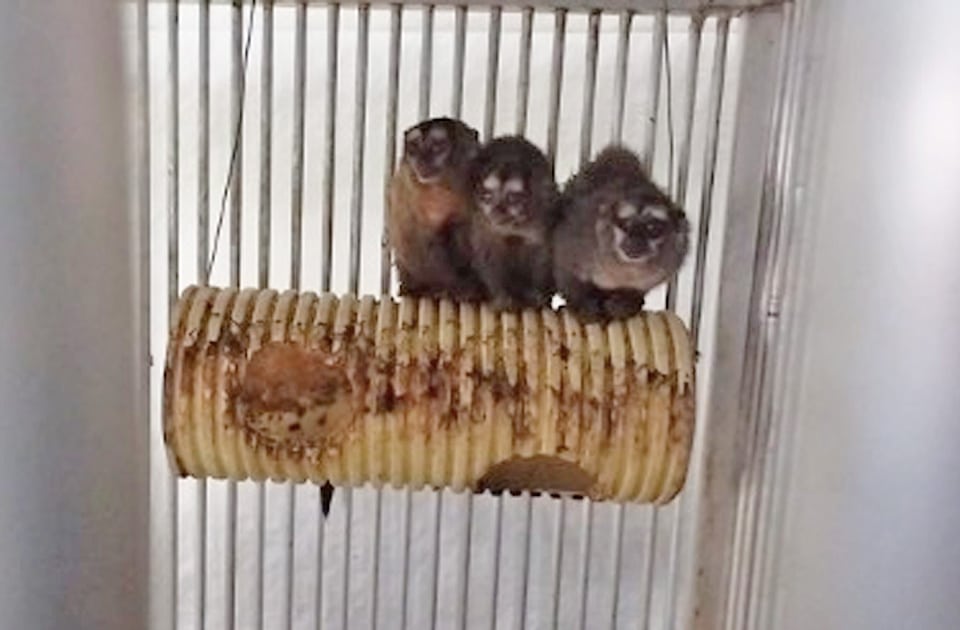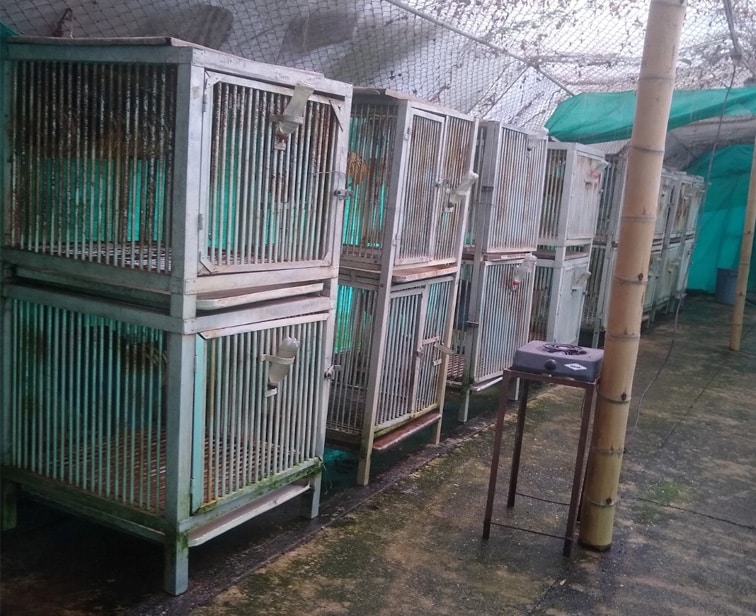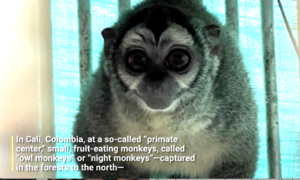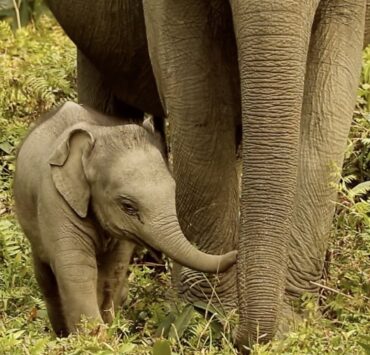Exposé of Colombian Vivisection Lab Sparks Calls to Pass the New CARGO Act

A recent PETA exposé of a cruel primate vivisection lab in the Colombian city of Cali inspires calls to pass the new CARGO Act to ban US-funded foreign animal experiments.

Los Angeles, September 1st, 2023 — The animal rights organization PETA has launched an exposé of a cruel primate vivisection lab in the Colombian city of Cali which ended with over 100 monkeys being confiscated by the authorities due to many breaches of local legislation. This has now been showcased as an example of a foreign vivisection lab that was funded by US taxpayers via the National Institutes of Health (NIH). Now, a new bill introduced in Congress by Dina Titus (D-NV-01) and Troy Nehls (R-TX-22) called the CARGO Act is aiming at preventing this from happening again. It would ban foreign vivisection labs being funded by US taxpayers.
PETA: Tell Your Reps to Support Cargo Act
Supporters can send auto-letters to their two US Senators and member of the House of Representatives in less than a minute by clicking here.
Over 2 Billion Tax Dollars to Foreign Lab Cruelty
Between 2011 and 2021, NIH gave approximately $2.2 billion to 200 foreign organizations to fund 1,357 grants and contracts involving experiments on animals. The money went to 45 countries, including China, Colombia, and Russia.
UnchainedTV’s Jane Velez-Mitchell had a conversation with two members of the PETA laboratory animals’ team, Kathy Guillermo and Dr. Magnolia Martínez, about this Colombian case and the proposed legislation. Watch it here:
What Happened in this Colombian Lab?

Dr. Magnolia Martínez has a Ph.D. in environmental science from the Institute for Scientific and Technological Research of San Luis Potosí in Mexico. Her research focused on how government agriculture subsidies impact ecosystems. She started her career in Colombia as a social researcher with the United Nations Development Program and the Friedrich Ebert Foundation. She explains what happened in this lab in the city of Cali where wild-caught owl monkeys, kept in horrendous conditions, were experimented on, vivisection funded by American taxpayers through the NIH:
“They were breaking Colombian regulations, and that’s why it led to the rescue of the monkeys because, according not only to animal law but also environmental law, they were not meeting the requirements. They didn’t have the required permits to capture monkeys, or the required permits to experiment on monkeys, and they were also charged with causing harm to wildlife. Additionally, the Colombian FDA found that they were not meeting requirements for clinical studies either, so this is not only a case with non-human victims, but also with human victims.”
108 Monkeys in Deplorable Conditions

This horrific Colombian lab got 17 million US tax dollars before authorities seized the monkeys and filed charges against the couple running the place. Thanks to Dr. Martinez’s work, 108 monkeys and 180 mice were rescued from this facility. She explains how she feels about it:
“It was amazing to know that, at least for them, the suffering was over. But, of course, we know that this is just a tiny number of animals compared to the millions of animals around the world that are confined and tortured in pointless and cruel experiments. It still feels good, of course, but it’s just the tip of the iceberg.”
“We can’t continue wasting taxpayer money in experiments that are not advancing human health. It is just a waste of lives and a waste of money.” — Dr. Magnolia Martínez, PETA
What is the CARGO Act?

Kathy Guillermo is the Senior Vice President of Laboratory Investigations for PETA, which works to end the use of animals in experiments. Guillermo’s 1993 book, Monkey Business: The Disturbing Case that Launched the Animal Rights Movement, details the cruelty case that launched PETA into national prominence.
The Cease Animal Research Grants Overseas (CARGO) Act has been introduced in the House of Representatives and the sponsors are Representative Dina Titus, a Democrat from Nevada and Representative Troy Nehls, on the Republican side, from Texas. There are already several co-sponsors, and the bill will soon be introduced in the Senate as well. Guillermo explains what the CARGO Act is all about:
“This is a bipartisan bill, and what it does is completely cut off U.S. funding for experiments on animals in foreign countries. We do need to end all animal experiments in this country too, there’s no question about it, we’re well aware that these experiments on animals rarely lead to any benefits for humans. We have a scientific community stuck in a paradigm, or they don’t want to acknowledge the change.”
Laboratories in the U.S. that want to experiment on animals, and request funds from the National Institutes of Health, need to fulfill certain minimum requirements, such as abiding by laws, reporting when they violate those laws, having oversight committees, etc. However, those requirements are nonexistent when the labs are in foreign countries, and 2.2 billion dollars have gone to these foreign labs in the last 10 years. This will stop if the CARGO Act is passed.
PETA has set up a webpage where, with a couple of clicks, in less than a minute US citizens can send an auto-letter to their representatives asking them to support the CARGO Act. Also, the White Coat Waste Project and Advancing Law for Animals also have joined forces to take legal action against the NIH on this issue.
“We’ve already gathered huge support from other animal groups. We’ve got quite a few co-sponsors already, so we’re very hopeful about this.” — Kathy Guillermo, PETA
What's Your Reaction?
Jordi Casmitjana is a vegan zoologist and author.









